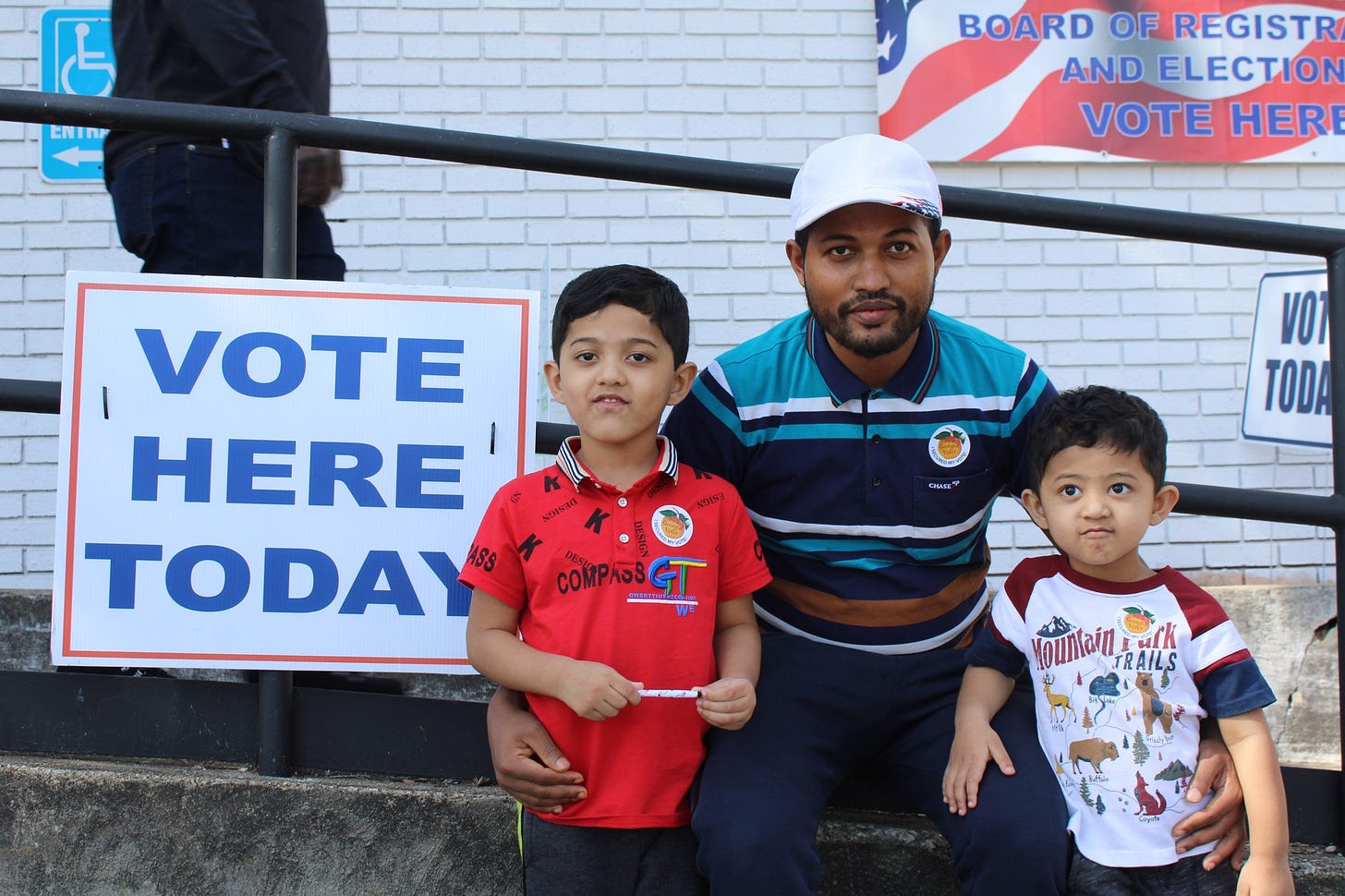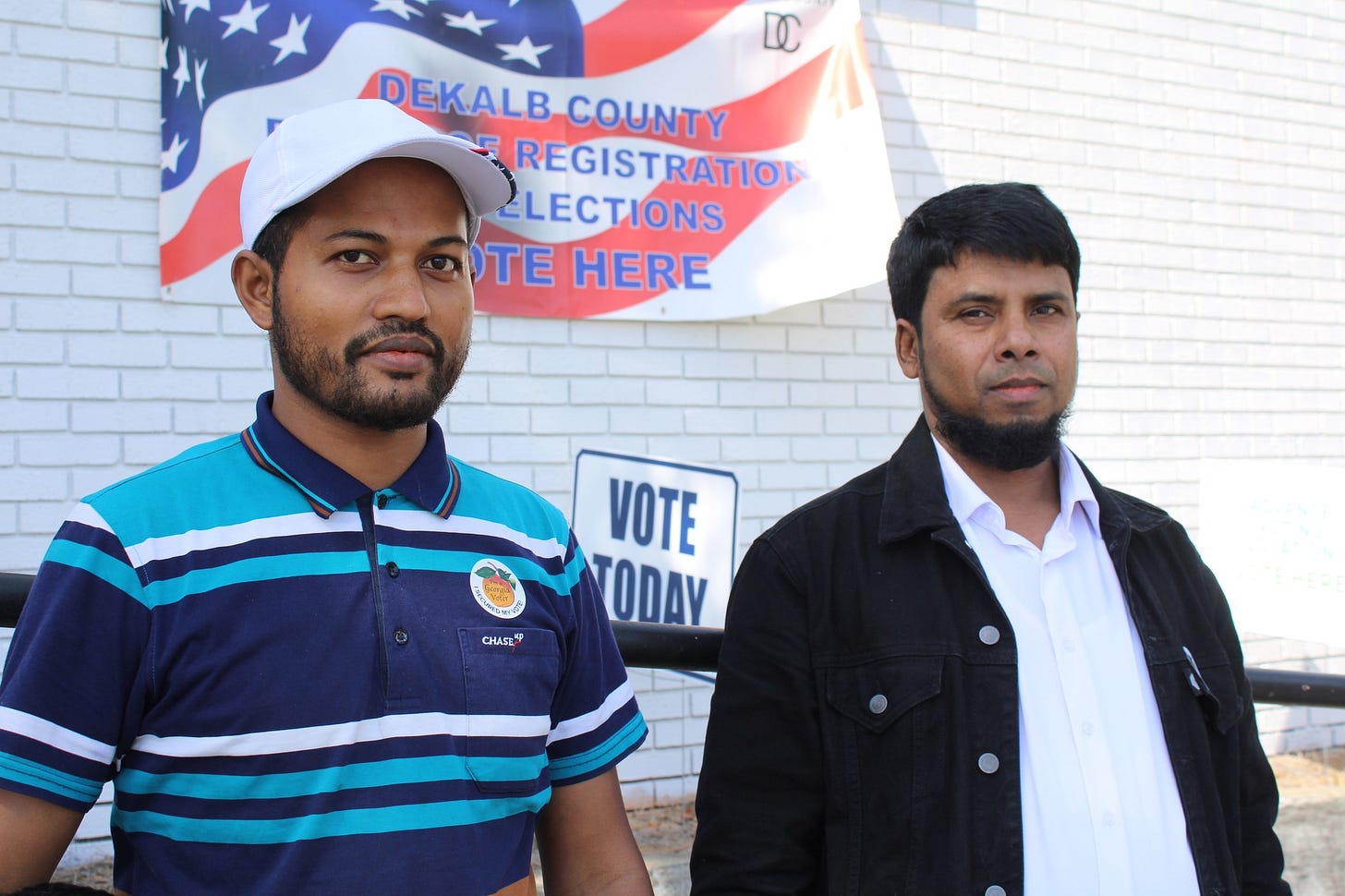Voting for the first time - ever. “It feels so great."
Abu Talib and Shokat Islam are part of Georgia's Rohingya community. After being stateless their entire lives, they are finally able to cast a vote.
Abu Talib and his friend Shokat Islam emerged from the early voting location in the Dekalb County Tax Commissioner Office on Memorial Drive on Tuesday repeating the same word more than half a dozen times: "happy".
"Happy, happy. So happy, this feeling," said Shokat as he stood outside with Talib, Talib's wife Umi Kalsom, and two of their four childrenn- three-year-old Zohiab and four-year-old Firodus.

It was a historic day. Talib and Shokat became U.S. citizens this past March and it was the first time they were casting their ballots in a U.S. election - in fact, it was the first time they had been able to vote in any election, ever.
They're members of the Rohingya community in Myanmar- an ethnic group the UN has called the "most persecuted minority in the world." The Rohingya were stripped of their citizenship in Myanmar in 1982, when the country’s nationalist government passed a citizenship law that required all Rohingya to provide proof of ancestry prior to 1823, or be rendered stateless. In 2017, after the Myanmar state security forces launched an operation that led to the destruction of many majority Rohingya villages, over 700,000 Rohingya, including Talib's parents and two of his siblings, fled to refugee camps in neighboring Bangladesh.
"It's a big deal for us.. we never became citizens in our own country...I never thought I'm going to vote...I feel so happy," said Talib.
There are around 600 to 700 Rohingya living in the metro Atlanta area, according to Talib, who helps run the Burmese Rohingya Community of Georgia. Many of them, he said, became citizens this year. They join the more than 96,000 Georgia residents who were naturalized in the last six years and are part of metro Atlanta’s fast-changing electorate.
Shokat works the night shift at a Cargill meat processing factory, which is why he was able to come to vote at noon on a Tuesday. “This time is my sleeping time,” he said. He voted Democrat down the ballot. Donald Trump, who was president when Shokat arrived in 2016, didn’t recognize the Rohingya genocide, he said. “Joe Biden, he said yes, they’re doing Rohingya genocide.”
Talib, who also works a night shift (but at an Amazon warehouse), had given Shokat the details on when and where to vote, and he showed up. “He told me today...come. I said to him, okay what time? He gave me the time, so I came at that time.”
This was only natural for Talib - he became civically engaged long before he became a citizen, he said, because of his work at New American Pathways (NAP), a local nonprofit that supports immigrants and refugees. "I knew the system because I worked at the agency...every year I bring people to vote." He had already messaged the community Whatsapp group about early voting, and expected many would come out once they sorted out their schedules. His wife, Umi Kalsom, was proudly voting for the third time since she became a citizen in 2019.
“It feels so great. We never vote in my country, you know,” he said with a smile as his children circled around his legs. “It feels like this is our final country. There's no place to go, other than here.”






